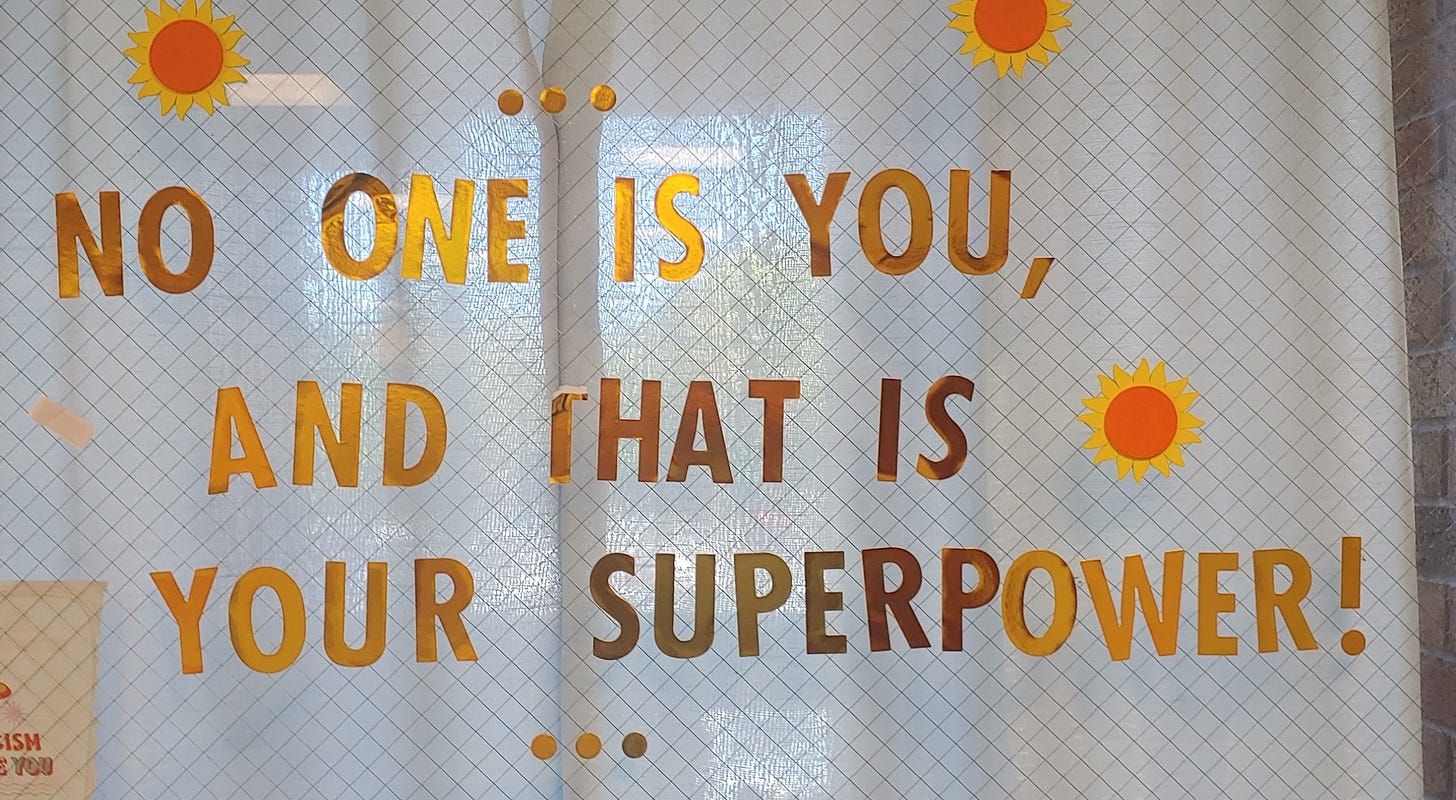"No one is you, and that is your superpower"
Leaning into the increase of narcissism and the decrease of empathy in young people
Back in 2014, the psychologist and author Peter Gray wrote an article titled Why is Narcissism Increasing Among Young Americans? The article argues that there is evidence that suggests that since the 1970s, and with each passing year, young people have been exhibiting more narcissism and less empathy. Gray supposes that this is connected with less opportunities for free play, particularly with younger people.
While my personal relationship with “unschooling” (also known as “Self-Directed Learning”) has become more complicated as my own kids get older, I still very much believe in the basic premises of unschooling. That is, given a rich environment, providing children with as much freedom as possible to decide what to learn, how to learn it, and how much time to spend learning it, is the most effective way for young people to learn, to develop a love of learning, and to realize their full potential, not just as a student, but as a person. This is especially true of young children, but versions of this philosophy apply all the way up to college, and even well into adulthood.
Unschooling typically involves lots of free, unstructured, unsupervised, often outdoor play with other children, and is where kids learn much of empathy and how not to be a narcissist. The show America’s Most Wanted and the milk carton kids marked the beginning of the end of unsupervised and unstructured play, and we have been trending towards more structure and more supervision ever since, culminating in covid quarantines and google classrooms.
I’ve agreed with almost every single thing that I’ve read that Dr. Gray has written, and I believe I’ve read most of it. However, to add to the problem of narcissism that he’s identified, I believe we teachers are leaning into the increase in narcissism and decrease in empathy in students.
I’m not a researcher, and my experiences are my own, but if I were to sum my relevant anecdotes up in a sentence, it would be this message posted outside an office in my school for students to see:
No one is you, and that is your superpower!
Imagine being 16 years old and believing that. That you are unique and special and different from everyone else and that’s what gives you your power.
It’s not true and it’s ridiculous. As young people, they have far more possibility than we do. Which is why I enjoy working with young people. But possibility is not unique - all of them have it. In a way, as special as each individual kid is, they are all the same. They are all unrealized people. For the most part, they don’t have any particularly useful insights. They haven’t accomplished anything meaningful. This is exactly why unschooling and similar philosophies can be so useful - to maximize the potential of each child by opening up opportunities for exploring interests and honing strengths. Their strength is in what they may become, not in what they are. What they are are liabilities in virtually every sense of the word. What they may become is what is precious, and what is to be protected, because it is the future of this world. But it is the future, not the present.
Imagine, then, believing that what you are is your superpower, when what you are is a liability. Imagine believing that earning some AP credit or making the team or managing a job while in school makes you some kind of hero. Those are all fine, and I think young people should busy themselves with such things as opposed to sitting and scrolling, but they aren’t particularly special accomplishments. They certainly aren’t the qualities of one with superpowers. They are, perhaps, the qualities of one who may someday have superpowers…maybe. But excessive admiration in oneself, i.e. having the superpower of just being you, is not a “virtue” that we should be encouraging in young people.




